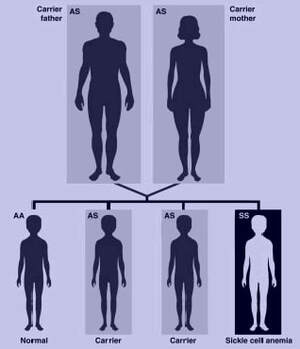|
Sicke Cell Disease
Sickle cell disease is a group of inherited red blood cell disorders.
|
Sickle Cell TYPES.Hemoglobin is a protein that allows red blood cells to carry oxygen to all parts of the body.
HbSS: People who have this form of SCD inherit two abnormal hemoglobin sickle cell genes (“S”), one from each parent. This is commonly called sickle cell anemia and usually presents in a more severe form of the disease. HbSC: People who have this form of SCD inherit a sickle cell gene (“S”) from one parent and from the other parent a gene for an abnormal hemoglobin called “C”. Hemoglobin is a protein that allows red blood cells to carry oxygen to all parts of the body. This is usually a milder form of SCD. Hb-S beta thalassemia: People with this type of SCD inherit one sickle cell gene (“S”) from one parent and one gene for beta-thalassemia, another type of anemia, from the other parent. There are two types of beta-thalassemia: “zero” and “plus”. There also are a few rare types of SCD: HbSD, HbSE, and HbSO People who have these forms of SCD inherit one sickle cell gene (“S”) and one gene from an abnormal type of hemoglobin (“D”, “E”, or “O”). The severity of these rarer types of SCD varies. Source: www.cdc.gov |
|
Cause of Sickle Cell Disease: Genetics
Who is affected by Sickle Cell Disease
|
|



